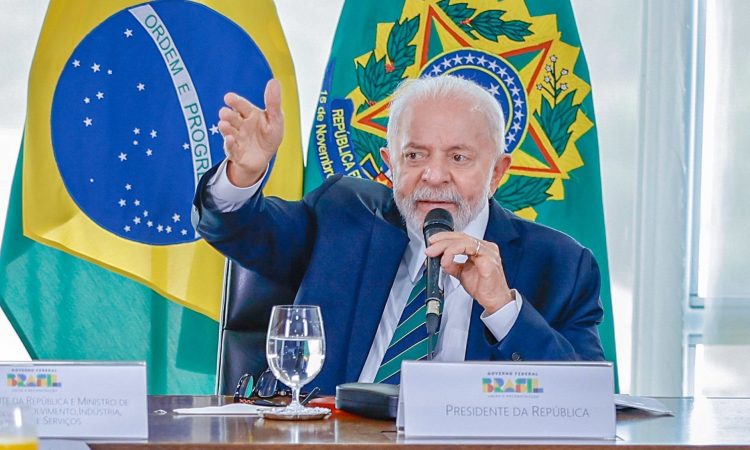
President Luiz Inácio Lula da Silva (PT) sanctioned, with vetoes, the bill that provides for the gradual repayment of the payroll of 17 sectors of the economy and small and medium-sized municipalities, and defines compensation for the tax waiver that the measure will generate this year.
The text was published in an extra edition of the Official Gazette of the Union (DOU) this Monday (16), within the deadline established by Minister Cristiano Zanin, of the Federal Supreme Court (STF), .
If Zanin did not accept the additional time, the productive sectors and municipalities benefiting from the exemption would have to resume paying taxes from last Thursday (12). On the date, the .
The law provides for a gradual reinstatement from 2025 to 2027.
The exemption in 2024 replaces the employer’s social security contribution of 20% on the payroll with a tax of 1% to 4.5% on gross revenue.
Starting next year, entrepreneurs will undergo a hybrid charge, which will mix part of the contribution on the payroll with the tax on gross revenue.
The president of the Senate, Rodrigo Pacheco (PSD-MG), says that Lula’s sanction ends a long path of maturing discussions between the government and the National Congress on the topic.
“The consensus reached represents a very favorable solution for sectors of the economy and, mainly, for Brazilian municipalities, which now have a very relevant measure for balancing public accounts”, concludes Pacheco.
Vetoes
The Official Gazette of the Union brings the presidential message with the justification for the vetoes carried out on the text approved by the National Congress.
One of the vetoed provisions was article 19 of the bill, in the part in which it establishes Chapter II-A and in the part in which it includes art. 15-A to Law No. 13,988, of April 14, 2020.
Chapter II-A creates the Non-Tax Credit Collection and Negotiation Centers, with transversal competence to carry out dispute resolution transaction agreements related to administrative or judicial litigation or the collection of debts registered in active debt or owned by the Union, of autarchies and foundations held by individuals or legal entities, observing the rules applicable to the transaction in the collection of active debt referred to in this Law, except for matters involving tax credits.
According to the justification for the veto, the inclusion made by the device “introduces, in detail, the system of collection centers and negotiation of non-tax credits, assigning powers, based on their content, transversally to administrative units of the Federal Executive Branch, for means of proposing a parliamentary initiative”.
“Thus, the device, as it entails changes in the organization and functioning of the Public Administration, requires an initiative for a legislative proposal by the head of the Executive Branch, in accordance with art. 61, II, ‘e’, of the Constitution, so that the precept suffers from an unconstitutionality defect.”
Article 24 was also vetoed, which defined that priority resources would be allocated to the AGU and the Ministry of Finance for the development of charging systems and negotiable conflict solutions for the Federal Attorney General’s Office and the Federal Revenue Service.
“Despite the good intentions of the legislator, the provision goes against the public interest, as it restricts the allocation of priority resources to the development of charging systems and negotiable conflict solutions to specific bodies, which undermines the adoption of criteria of opportunity and convenience in allocating resources for the public credit regularization policy”, says the justification for the veto.
Another vetoed provision was article 26, which says that the Executive will appoint, within 90 days, the person responsible for the costs of development, availability, maintenance, updating and administrative management of a unified system for the constitution, management and collection of non-tax credits in the administrative phase of federal public agencies and foundations.
In the AGU’s assessment, the device in question violates the Constitution, by imposing a deadline for the head of the Federal Executive to appoint an administrative unit responsible for the tasks listed. “This requirement would represent undue interference by the Legislative Branch in the activities of the Executive Branch, since the superior direction of the federal public administration is the exclusive competence of the President of the Republic.”
Another veto, suggested by the Ministry of Finance, was article 48, which says that resources existing in deposit accounts or that have been transferred to the National Treasury — forgotten resources — may be claimed from financial institutions until December 31, 2027. .
When justifying the veto, the government argued that “the device goes against the public interest, as it designates a deadline for claiming forgotten resources in deposit accounts that conflicts with the deadline outlined for the same purpose in articles 45 and 47 of the proposal”.
*With information from Estadão Conteúdo

